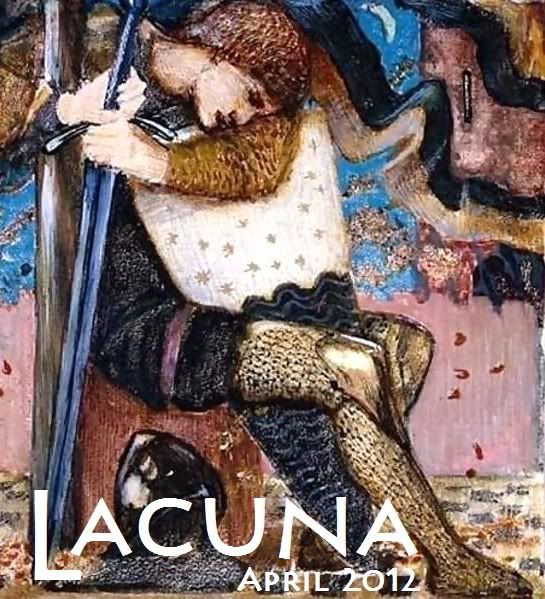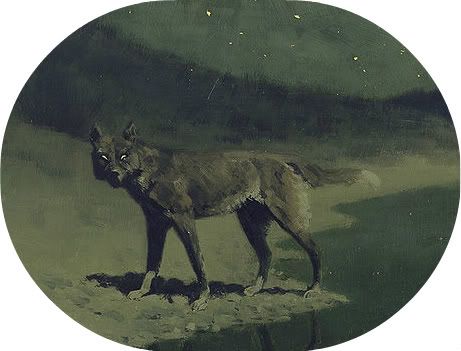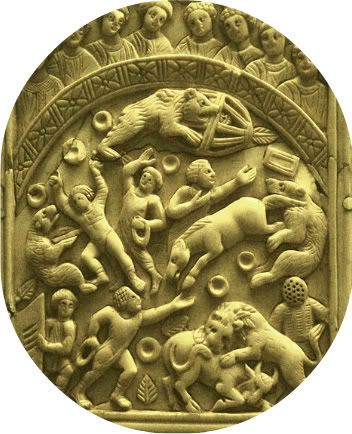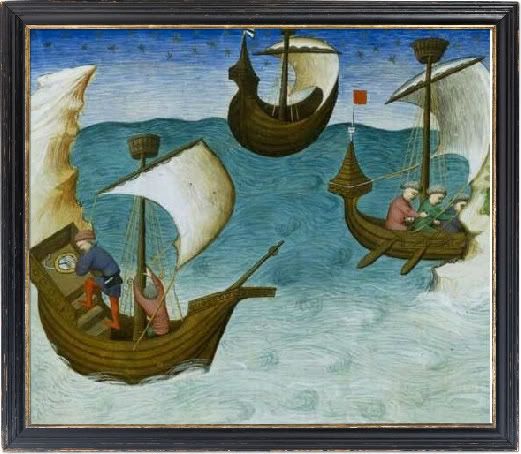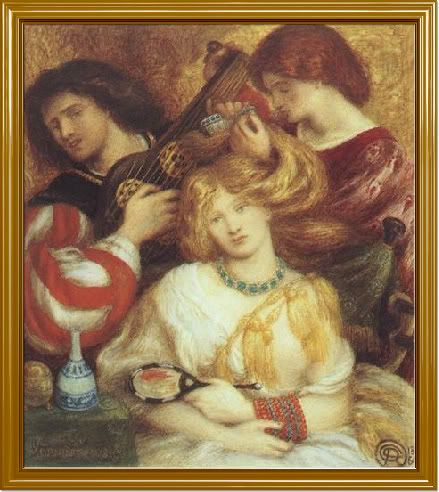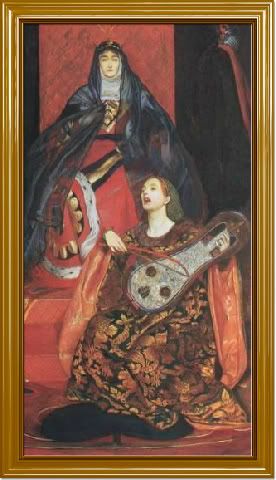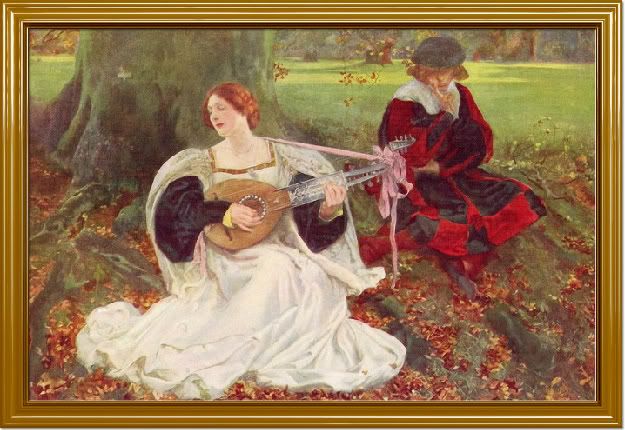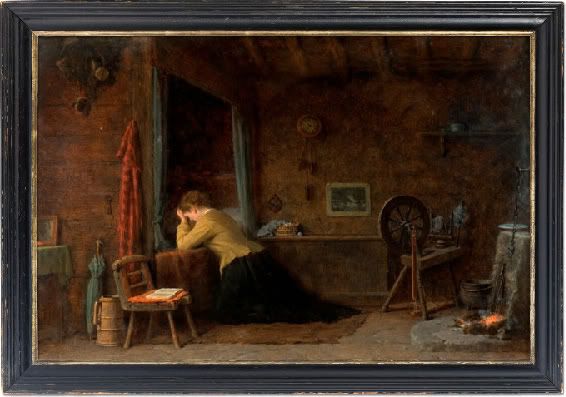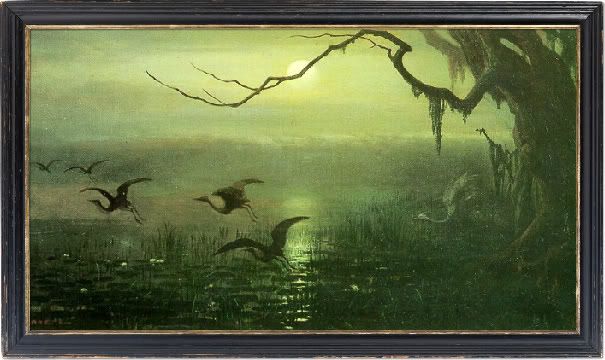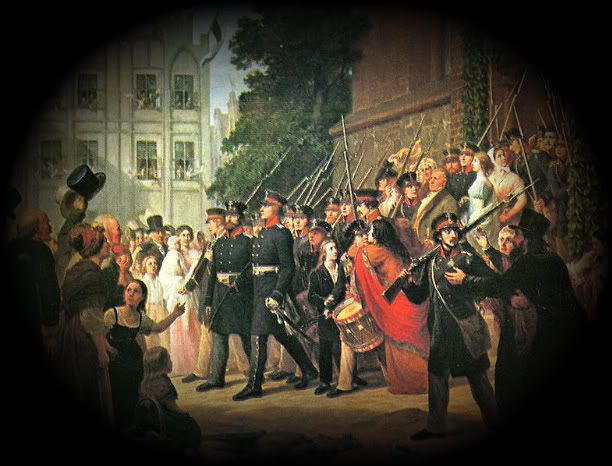
The Battle of Sablat
by Barb SiplesThe coals in the brazier were dead. The only red in the tent smoldered in the rich weave of the Ottoman carpet beneath my boots, and doubtless in my face, for I was sweating despite the chill of late spring in Bohemia. I stood at attention before von Buquoy’s desk and waited for him to remember he had summoned me.
At length the count looked up, but past me, as someone rustled the door flap and came inside. That someone smelled strongly of gardenias. The scent reminded me of the little flower garden my mother maintained on our estate in the Rhineland and I felt a pang of pure, pointless longing.
“Madame Pomeroy,” von Buquoy said, standing to take the lady’s gloved hand. He raised it briefly to his lips. “Allow me to introduce Lieutenant Sebastian Maibach. You’ve heard of him, I’m sure.”
Madame Pomeroy ignored my crisp bow and settled herself into the folding camp chair beside the desk. “The hero of the Battle of Lomnice? The army’s abuzz with it, my lord. I understand he slew a great number of the enemy. In most dramatic fashion. The ranks of horse bearing down, young Sebastian here elbowing his men out of the way, slashing about with gusto. They say he split an adversary’s skull, shouting ‘Death to the Hussite!’ as the devil rode past.” There was an unmistakable twist to the rouged lips. Madame Pomeroy was mocking me.
Von Buquoy busied himself with opening a drawer and placed three silver cups, hardly bigger than thimbles, on the desktop. The vertigo that had seized me upon hearing mention of Lomnice, and my role in the slaughter, slowly ebbed in consequence. I trusted von Buquoy had noticed nothing, but I was not so certain of the lady.
Looking up from the cups, the count gave me his full and sudden attention. His eyes were sharp beneath the curls rioting on his dark head. “Tell me, lieutenant. What do they say about Madame Pomeroy?”
“That she is your best field spy, sir,” I told him frankly.
Von Buquoy laughed. He poured a colorless liquor into each of the three cups. The smell of peaches bloomed between the fabric walls, overpowering the beeswax scent of the candles.
“Here’s another question for you, Maibach. Do you believe in the erlenvolk?” When I stared at him blankly he snapped, “Fairy tales, man. Surely you’ve heard of the high elves, the children of the wildwood.”
“Elves, sir?” I said hastily, thoroughly bewildered. “No, sir.”
“Well then,” von Buquoy continued casually, as if the subject had never arisen. “You’ve proved yourself capable of a certain viciousness, Lieutenant Maibach, and by your birth I know you are not lacking in education and courtliness. These are precisely the divers qualities some of the army’s less...regular duties require.”
“That’s one way of saying it,” Madame Pomeroy murmured and a twitch of humor flitted across the commander’s lips before he went on.
“I am therefore pleased to present an opportunity for you to demonstrate your usefulness to the Empire. Think of it as a trial. If all goes well, other opportunities will follow, in which you will play a greater role. And reap a greater reward. But for now, Madame Pomeroy is in command and you are to offer her your support. In whatever capacity she requires. The secrecy of this mission is of the utmost importance. It must remain known only to the three people presently in this company. I will say no more until—”
“I accept,” I said.
Madame Pomeroy sat up in her chair and clapped her hands like a little girl. “He doesn’t even want the details,” she trilled.
“Excellent,” the count said, and handed around the schnapps. We drank to his most Catholic majesty Emperor Ferdinand the Second, and a swift victory in Bohemia. I hardly tasted it. Could it be that my luck was changing for the better?
* * * I followed the sparse orders I’d been given and met my rendezvous at the eastern picket shortly before dawn of the following day. The wagon and the team I’d expected, but not the oversized crate in the bed, and certainly not the boy perched in the driver seat. The crate was oddly fashioned, a crude, deep cupboard the height of a man. Sturdy nails secured the lid, and the two hinged doors that met at its face were secured with a padlock. It brought to mind the cage of some rare and dangerous animal, a lion of Africa perhaps. I pressed my fingers to the iron lock. The metal felt oddly warm.
“Where’s Madame Pomeroy?” I asked the boy.
He lifted a corner of his shapeless hat and peered at me crossly. “You make a terrible spy.”
A noise of embarrassment escaped me. I recovered with, “But I’m not a spy, madam.”
“What are you then? A soldier? Where’s your uniform?”
I had no reply to that. I wore the rough clothes of a crofter, as I’d been ordered. I barely had time to clamber onto the seat beside her before Madame Pomeroy snapped the reins across the horses’ shoulders and the beasts trotted off.
I didn’t speak again until the sun bullied its way through the clouds. I knew better than to ask what we carried in the massive crate at our backs. Munitions or gold, I suspected, although the horses stepped lightly. Our destination was a guesthouse called the Krone in a town called Sablat.
“Have you been long in Count von Buquoy’s employ?” I inquired cautiously.
“Small talk, lieutenant?”
I looked around at the empty farmland. “How else will we become acquainted?”
“Oh, but I know all about you already, Lieutenant Sebastian Maibach,” Madame Pomeroy said with relish. “I know, for example, that you are also one of the lords von Spiegler. Not a terribly significant branch of the aristocracy, politically speaking, but the von Spieglers do figure in society. Or did, until fairly recently. I’ve been given to understand that the house of Maibach is on the verge of bankruptcy. Your sister Charlotte has been marriageable for almost two years, with no prospects. Your cousin—Dietrich is his name—is seeking a buyer for the family holdings once he inherits—”
“Dietrich won’t sell,” I said sharply. “Never.”
“Is that what he told you?” she asked, cheerful as the songbirds that called from the hedgerows.
“How much of this does von Buquoy know?”
“Everything that I know,” she said, “von Buquoy knows. It’s why he pays me. It’s why you’re here.”
“How do you mean?”
“Did you think it was your bravery? Your manly height? Your broad shoulders? No, Lieutenant Maibach. You’re here because von Buquoy knows you’re desperate to save the family estate. And desperate men are loyal men.”
“I’m here because I impressed him,” I countered, refusing to surrender my dignity. Or what little of it remained.
“Well, partly,” she conceded. “Von Buquoy doesn’t suffer cowards. I understand Lomnice was your first engagement?”
My mouth went dry. I put a steadying hand on the bench, stunned by the roar of cannon, the shock of resistance as my saber tore through living flesh. I licked my lips and said, “Yes. My first.”
“Well, those fencing lessons certainly paid off. The von Spieglers will be quite—”
“About that, about the family difficulties. I know it must seem—”
“Save your breath, lieutenant. I don't care one whit about your uncle’s disastrous penchant for games of chance. Or your cousins’ fondness for fine tailoring and jewelry.” While I registered her cruelty in shocked silence, she said with feeling, “Honestly, Maibach. They’ve piddled away your inheritance. What more is there to say?”
“I have a duty to my family,” I began but stopped short on seeing her expression. “Is duty so amusing to you?” I demanded. She was really quite infuriating. “You serve the count—”
“I serve von Buquoy, yes; but my duty is to myself. You’re young yet, lieutenant,” she said blithely. “I trust it won’t take you long to discover that duty is merely a word, a word men employ to convince others to do their dirty work for them.”
I clenched my jaw against an angry retort. “What happened to you,” I said at last, “that you should feel this way?”
Madame Pomeroy looked at me keenly before turning her attention back to the horses.
“Perceptive, Lieutenant Maibach. And correct. I was once like you. I believed in duty and honor. And love. I came to discover that these things are nothing more than the walls of a prison.” She smiled like a cat. “I suppose you could say that von Buquoy liberated me from my jailors. Very perceptive, indeed. Perhaps there’s more to you than a pleasing face.” She laughed at my startled expression. “You’ll really have to forgive me. It seems I’ve forgotten how to behave in civil company.”
I could find no response. Some part of me—a part I had forgotten existed—was absurdly delighted: von Buquoy’s best field spy thought I had a pleasing face.
Dusk brought us to a shed at the edge of a field, a passable shelter in which to spend the night. Tomorrow we would reach Sablat, leaving the countryside behind. I would regret it. The soil here smelled fresh, newly turned in anticipation of the sowing. I stooped and lifted a fecund clod to my nose. It smelled like home. After a lingering look at the color-smeared sky, I let it drop and went, with some trepidation, to join Madame Pomeroy in our accommodation for the night.
“We’ll be some time in each other’s company,” she remarked pleasantly when I stepped inside. She was on her knees, arranging her bedroll. Her hat lay in a corner and the tresses of her honey-colored hair swept over her shoulders. “I’d like us to feel at ease. Would you prefer I address you as Lieutenant Maibach, or Lord von Spiegler? I’m afraid I’m not quite clear on the protocol.”
It was a vexing question. She was my superior in rank, but I was noble born. To complicate matters, we were both incognito.
“I’m a soldier by necessity more than choice,” I said after a moment’s deliberation. “Army protocol’s not something I’m keen on. And I hardly feel the need to play the lord, not in these clothes.” She grinned impishly. Despite her comments about my youth, she could not be much older than me. “It’s only the two of us,” I continued impulsively. “Please call me Sebastian.”
“You prove yourself generous as well as brave. Call me Katja.”
“Brave,” I said bitterly and wished I’d held my tongue.
“Well, yes,” said Madame Pomeroy—Katja, if I dared—rising to her feet and regarding me quizzically. “You
are the hero of Lomnice—”
I groped for the wall. Instead I caught Madame—Katja’s arm.
“Sebastian?”
“It’s nothing,” I said, but the words felt wrung from my throat and barely discernible. These spells—attacks—were growing worse. Katja helped me sink to the rough planks of the floor, where I sat and blinked away the memory of artillery smoke stinging my eyes. “I’m sorry. I don’t know what’s come over me.”
“You’re trembling,” she said. “You’re shaking all over.”
I leaned back to feel the reassuring solidity of the wall, breathed deep at the sensation of Katja’s cool hand on my forehead. Her fingers moved to my cheek, my hair…and all the while her eyes searched mine. Then her lips met mine. I felt them rove over my face, her breath at my ear, murmuring soft, whispering words that were little more than sounds, comforting things one might say to calm a nervous horse.
“I’m no hero,” I said around her lips. I had done at Lomnice what duty demanded, what family honor demanded, compromised though it was. I had done what was needed for von Buquoy to notice me, and now I was sick with it.
“Poor Sebastian,” she whispered. “I can help you. Let me help you.”
I reached for her, found warmth and brought it in close, let it become fervor. The world spun away. I felt a confusion akin to Lomnice so that I hardly knew what I did. But unlike Lomnice, when the heat and the fury had faded it was peace that lingered; peace, instead of regret.
I lay in the dark breathing the scent of hay from Katja’s hair and said, “The world feels far away just now.”
“Very far,” she agreed. “But it’s still out there.”
“You know I can’t marry you,” I began.
Katja jerked her cheek from my chest. “Good Lord, why would I want to do that?”
“If there’s a child, I’ll do my duty by you. You’ll be well―”
“Oh, Sebastian, ” she said. “You really are an innocent.” She burrowed into my side, warm and fragrant. “There won’t be a child. And as to the other, haven’t you been listening? I had that once. It’s not what I want.”
“What
do you want from me?”
“Just this.” She shifted against me. “Just warmth. It gets cold.” She laughed a little. “Out on the open road.”
“But surely—”
“I’m no delusional tavern girl, Sebastian. Stop talking, would you? Go to sleep.”
It was good advice and I took it.
* * *
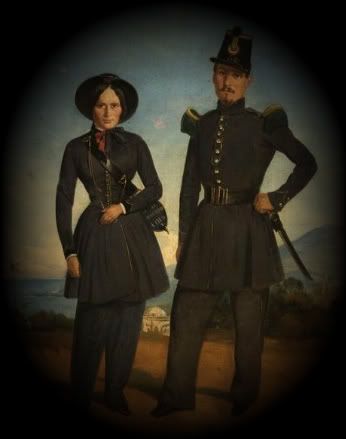
* * *I was upright with saber in hand without knowing what had roused me. Katja was quicker still, and beat me to the door and through it though she paused to snatch up her coat. Stepping onto the moonlit road, I caught my breath in a sharp, unmanly gasp.
The space around our wagon teemed with astonishing life. At its farthest edge a full herd of deer milled in a nervous circle, hooves churning, defining the outer arc of the uncanny scene. Closer in, a pack of foxes chased their tails, broke off to weave with graceful long limbs over and through and under each other, only to turn in frantic circles once again. At the center at least a hundred gray hares crouched trembling beneath the wagon, kicking now and again an agitated leg, twitching a restless ear. Owls there were too, perched atop the crate, softening the sharp angle of the roof with a carpet of rustling, restless feathers.
And I saw in the starlight that the earth beneath each of the four cartwheels had erupted with life—a garden of fronds and questing vines—to lace the spokes and bind the wagon to the track.
Katja stepped forward with a shout. I threw up my arms on instinct, felt the wind of many creatures passing into the twilight, knew with some primitive sense that we were alone again on the road even before I lowered my arms and could see again. But not entirely alone.
“What is in that crate?”
“My orders are to keep it locked,” Katja said, her breath visible in the brittle air, “and its contents secret. At least until Sablat.” But she fished inside the seam of her coat and produced a key.
I wrestled the lock open and flung the hinged doors wide. Moonshine glowed from twin discs of light at the rear of the long crate. A clot of shadow shifted and came toward me.
Wolf, I thought. I danced backward and raised my saber.
But what lunged for freedom was no animal. In the blur of motion I glimpsed wan, beardless cheeks, a cloud of fine, silvery hair. The long, lean muscles at arm and shoulder summoned to mind a troupe of acrobats I had been taken to see as a child. Like them, this man was clothed in nothing more than a breech clout. Yet neither was this a man.
He flew forward and I stood dumbfounded, utterly useless, all soldiery cast aside. At the last moment something checked his momentum, something I heard as a snick of metal, a chain drawing taut. The prisoner collapsed in a heap of finely shaped limbs just inside the threshold of his prison. The spider-web tresses of his hair obscured his face and draped his shoulders like a veil. It was a manacle around his ankle that had arrested him, fixed by a short chain to the interior of the crate.
All this I perceived in a moment’s time. As the wretch lay shivering inside his prison, I remembered to breathe. I saw in the gloaming that his back was marred by great bruises, black fading to purple, and that the flesh around the ankle-cuff was swollen and angry. My lips moved, but nothing emerged from my throat.
“When von Buquoy told me,” Katja said quietly at my side, “I took it for a jest. A misfired shell, exploded in the wood; a man who was not a man, found dazed beside the crater. When the count insisted on his story, I feared him mad. The pressures of his post, you see. But then I saw—” Her hands jerked toward our cargo. “I saw for myself.”
“What you are saying…” I began. It was inconceivable.
“The erlenvolk. They’re real. They’re
real, Sebastian.” She stepped to the tailgate and with a startling familiarity, tugged the erlenman’s shoulder so that he rolled onto his back. I strained toward him.
High bones; a pointed chin; eyes closed but moving beneath the lids; arched, feathery brows. And all of the most delicate beauty, otherworldly beauty, painful to behold.
“But why?” I demanded. “What does the count want with—? Wait. What is it, there at his throat?” A wound, festering and evil.
“Watch,” Katja said, ignoring my questions. She held in her hand a bit of dry winter grass, torn from the roadside. I had not seen her pluck it. She let it fall to the erlenman’s chest.
He twitched, moaned, clutched the dead stalks against himself, all without fully rousing. In a moment a climbing green tendril curled from between his clenched fingers. Another followed, and another, and in a moment’s time it appeared he held a bouquet to his chest. Blossoms burst forth like fireworks, like mortar fire.
“
Gott im Himmel,” I breathed. The silver eyes snapped open. I staggered backward and sat down in the road.
Katja blurted out a laugh, more surprise than amusement. “Sebastian! Are you alright?”
I was far from alright. The world had dropped out from under me. Here before me was evidence of the wild and the utterly free, an impossible creature, untrammeled by the constraints of humanity. I staggered upright and returned to the tailgate, legs trembling. The erlenman had retreated to the far shadows of the crate and regarded us balefully.
“Why is he, why have we—?” My mind, my heart, were racing. I glanced about wildly. “We need to unchain him. Katja. We need to let him go.”
“Don’t be ridiculous. We’re taking him to Sablat.” Katja stepped around me and pushed one of the doors shut with a bang. I stopped the other with my hand. “Sebastian?”
“We can’t,” I told her.
“We’re under orders,” she said with precision. “Does that mean nothing to you, lieutenant?”
“What happened to ‘Sebastian?’”
“Don’t bait me! I’m in command here.”
I stared at her, deciding whether or not to use force. While I considered, her hand slipped into her pocket. Had she armed herself with her pistol?
“Do you intend to shoot?” I asked quietly.
“Do you intend to make me?” I found no response, noting the unkempt wildness of her hair, the deadliness of her gaze. I realized I wanted to kiss her, to convince her. And then she said, “Listen!”
The drum of hooves, coming fast.
“We’ve got to move. Now, Sebastian.”
With a curse, I stepped aside and let Katja secure the padlock. No sooner had I scrambled over the sideboard than the wagon tore from its green restraints and hurtled forward, knocking me to my seat. I retrieved the musket from beneath the bench and cast along the road behind us.
“Just one.” Katja’s voice was loud in my ear. “A highwayman. Or a spy—” The rider drew closer. Moonlight glittered across the brass buttons of his coat. “He’s in uniform. One of ours.”
She threw the brake, snatched the musket from my hands and bounded down to confront our pursuer. They exchanged a series of terse phrases I understood to be a code, and the rider tossed her a wallet. From it she extracted a heavily inked document, which she read and tore into pieces without showing it to me, though I stood now at her side. She handed the bits back to the messenger. “What are your orders?”
“To accompany you,” he said in a heavy Schwabian accent.
“Then do so,” Katja told him bluntly. “But bury those scraps first.” She walked past me, pulling her gloves from her coat pocket, and said, “A slight change in plans. We’ll make a detour to Bulgravad. It’s a town just east of here.”
“Why?” I demanded, following her to the wagon.
“Yes, you asked me that earlier,” she said in a low voice, conscious of von Buquoy’s messenger watching us. “About our prisoner, and why the count has tasked his best spy with delivering him to a tavern in Sablat.”
“And?”
She turned to face me. “Trust me, Sebastian. There’s more to this than meets the eye. Everything will be revealed to you in Bulgravad.”
* * * Bulgravad was a surprisingly populated town, a provincial seat for the Bohemian governor. This man, Chemnitz Birsing by name, was a collaborator for the Empire and an old friend of von Buquoy’s. Birsing had been wounded the day before by his secretary, a staunch Calvinist and independent, or so our Schwabian messenger informed us. Von Buquoy ordered us post-haste to his bedside.
I was not to worry. Katja assured me that Birsing’s secretary and his fellow heretics had been subdued and the town was again in the control of our allies. There was only the matter of Birsing’s condition to attend to. I was far from worried. More troublesome to me was the impossible fact that an erlenman lay bound inside the crate at my back.
As we rattled through the empty streets, I found myself remembering odd tidbits, nursery stories, about the children of the wildwood. They lapped cream from saucers left on the back step. They healed with a glance. They traveled the woodland on the backs of stags. They crowned themselves with flowers and danced in moonlit glades. They could not bear the touch of iron…
“We’re here,” Katja said, jolting me from my thoughts. I looked up at a stately, dark-beamed building decorated with the Emperor’s colors.
Katja descended to the deserted street and unlocked the doors of the crate. At her gesture the Schwabian dragged the erlenman from his prison. The creature collapsed immediately to the flags of the street and crouched there shivering. The iron band still cuffed his ankle, though the Schwabian had left the chain inside the box. The skin around the manacle remained dark and swollen. Darker, perhaps.
The Schwabian had no apparent understanding of what lay in a heap at his feet. He seized the erlenman by the hair and would have dragged him upright had I not intervened. I shouldered the brute aside and lifted our captive with a hand at his elbow and hip. He felt bird-boned, impossibly light.
The servants, retainers and officials that occupied the governor’s residence began to spill from the doorways, curious as to the nature of our late visit. Katja stepped hastily forward and threw a cover over the both of us, the horse blanket that cushioned the bench of our wagon.
I followed a narrow view of Katja’s heels inside. The erlenman swooned against me, bare feet stumbling to meet my stride. Once past the doors, at the foot of a narrow staircase, I tore the cover away and carried him up the steps like a child.
I brought the erlenman into a room smelling of blood. I had walked among the wounded in the surgeries after Pilsen and Lomnice and knew what to expect even before I stepped over the threshold. In a shuttered bedroom, a stocky man lay sweating atop a substantial four-poster. He tossed his gray head against the soaked pillows, moaning with fever. I caught a glimpse of the weeping hole in his side and turned my eyes away again.
My hands hummed with sensation where they pressed the erlenman’s body. It was like clutching a beehive to my chest. I was loath to release him into what seemed to me an abattoir. The field of Lomnice felt too close. The floor swayed beneath my feet. I couldn’t make myself let go of him.
Katja enlisted the governor’s attendants to relieve me of my burden and secure the erlenman to a chair. The Schwabian took part as well, appearing to relish his task of binding the erlenman’s ankles and wrists to the frame. Once accomplished, Katja made haste to clear the room. Now only the two of us—and the erlenman—kept company with the wounded Birsing.
“What will you do?” I asked, hardly recognizing my own voice for the horror in it.
“Wait and see,” von Buquoy’s spy told me. When the door opened I realized we had been waiting for the Schwabian to return with Katja’s traveling case. She placed it on the bed at Birsing’s side, unbuckled the straps, and withdrew a syringe. But rather than approach the governor she turned to me where I stood beside the erlenman. “Hold his head. Show me his throat.”
I merely stared at her. The Schwabian squirmed past me and did as Katja required, exposing the raw veins that stood raised in the pearly skin near the wound. Dry blood crusted the inky patch of skin at its center. But it was to this spot that Katja took her needle.
When the point penetrated the erlenman’s skin a powerful shudder wracked him, though his bonds held him to the chair. He made no further move as von Buquoy’s agent filled the shaft of her syringe. Unlike the crust at the erlenman’s throat, his heart’s blood appeared luminous in the glass cylinder, like quicksilver. I pressed my knuckles to my lips and prayed I would not fall crashing to the floorboards.
“Watch closely, lieutenant,” Katja demanded, and when she stood again at Birsing’s side she was careful to position herself to my best vantage. I saw that she held her needle above the governor’s wound and let the contents drip slowly onto it.
Birsing’s reaction was immediate. He gasped a great breath and sat up, eyes wide. His hand groped his side.
“All is well, governor,” Katja said. “You’re cured of that bullet hole. Count von Buquoy sends his compliments.”
“Von Buquoy?” Chemnitz Birsing said uncertainly. He flung his legs over the bedside. “Von Buquoy’s here?”
“Gently, Herr Birsing. You must rest now. Though really,” she said, turning to me, “staying abed is more for the benefit of the staff.” Katja turned back to the governor. “A full day if you please, your honor. We don’t want to alarm anyone. Or rouse anyone’s curiosity.”
“But I feel very fit,” Birsing said in a rush. “I don’t understand what has happened here.”
“That’s just as well,” Katja told him. I heard the steel beneath her cheerful tone. “The less said the better. Count von Buquoy would like it that way. And that isn’t a request, Herr Birsing.”
She had orders for the Schwabian as well. Once he had dragged our prisoner back to the crate she dismissed him with instructions to return to von Buquoy’s camp. When the cobblestones gave way to a road of packed earth at the outskirts of town, she gave me a look that was oddly shy. “We’re well rid of him, I think.”
I could think of no suitable response. My mind swam with all that I had witnessed. Katja sighed and said, “So now do you understand, Sebastian?”
“No,” I said unhappily. My teeth were chattering with more than the cold. “What is von Buquoy’s purpose?”
She was silent a moment over the thud of the horses’ hooves. “Emperor Ferdinand’s army marches at our back. We’re headed toward the front, toward a mighty battle. Many men will be wounded. Theirs will perish, Sebastian, but ours will live to fight another day. Don’t you see? We’ll set up a surgery in Sablat. In the cathedral perhaps, or under tents upon the main square. We’ll be well prepared. The erlenman will be well milked—”
“No!” I seized the reigns and forced the horses to a stop. “For men to butcher each other is terrible enough. But a creature such as he, confined in a crate, in a coffin? He belongs far from here. In the deep places of the wood, in its sacred groves. He must not be used by us, Katja, most certainly not for war. How can you think otherwise?”
“How can you not? You’re a sworn officer, Sebastian. Would you ruin von Buquoy’s scheme, his army that cannot die? The siege of Pilsen was ruinous for him. Lomnice was a second disaster. He needs a victory.”
“The erlenman must be set free.”
“And your family?” Katja demanded. “I thought your intent was to save the Maibach lineage, not disgrace it further. Betray von Buquoy and you betray your country. Would you forfeit your honor, your good name? What about your duty to your family?”
“You don’t believe in duty,” I said in petty spite, angry because Katja’s reasoning was having an effect on my resolve.
“That’s not what I said at all. Look.” She drew a calming breath. “Do you really understand what you’d be throwing away? One stretch of farmland’s as good as another. You can earn your own parcel in the Sudatenland. On your own terms. Make your own choices.”
“My own choices,” I repeated. “I’m setting him free.”
“Why, Sebastian? It won’t stop the war. It won’t stop the fighting.”
“No. It won’t. But it might… It might cure what’s wrong with me.”
Katja turned to me and put a hand on my wrist. Her fingers felt cold, unearthly. “I’ve seen it happen to other men, you know. Harder men than you. It’s nothing to be ashamed of. You’ve seen men die, that’s all. Now von Buquoy has the means to prevent that.”
“It doesn’t matter,” I said.
Katja’s hand moved to her coat pocket and I recoiled at the glint of metal. I had no doubt she would shoot if forced, but it was a flask that she retrieved from the stiff fabric and not her pistol. “Here. Brandy. It’ll settle your nerves. Sebastian. You know I can’t let you ruin von Buquoy’s best hope for victory. Have a drink. Think about it.”
I sat and thought, wrestling with consequences. In the end I stretched out my hand and accepted what Katja offered. I pressed the flask to my lips and swallowed fire. Perhaps she was right. I was a nobleman’s son and an officer. My duty was clear. Katja reached for the reigns where they rested across my knees. The horses were soon in motion, swift and obedient under her steady hand.
* * *
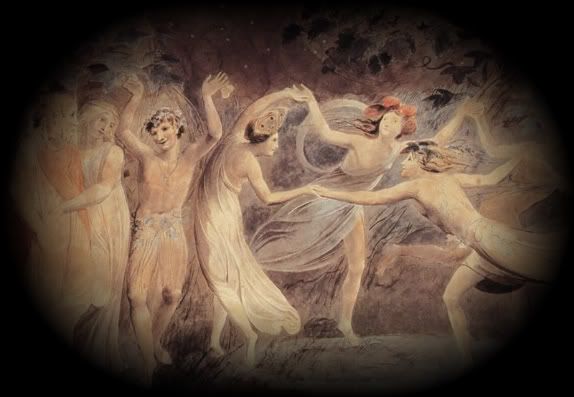
* * * Scant hours later, the rising sun liberated the steeples and towers of Sablat from the distance. We passed unspeaking through the town and watched it wake up around us. All at once Katja recognized a wrought metal gate with little golden crowns decorating the finials. She navigated our cart through it.
“Shut it behind us,” she demanded of the tidy boy who trotted into the courtyard. “Tell your papa to bring me the key to the cellar.”
When Katja opened the door of the erlenman’s crate, my heart sank. It was apparent the bloodletting in Bulgravad had weakened him further. I bore him down the steps in my arms and felt again the raw, humming power that rose from his skin. The sensation felt weaker than I remembered, subdued though not yet quenched. I reasoned that whatever dungeon awaited him in the cellar of the Krone could be no worse than his present confines.
“At least get rid of that cuff,” I told her as I eased the erlenman to the earth floor. Instead, Katja secured the end of the ankle chain to a rivet in the wall. It looked new, fastened there in anticipation of this very circumstance. She cast me a deliberate look.
“It would be best for you to make peace with this, Sebastian. Neither you nor I can stop it.” I said nothing, trying to believe her. The erlenman watched me through the curtain of his hair. I could feel his eyes on me even as I stood on the other side of the door. Even as I lay down in utter weariness on the starched linen sheets in the room I was shown.
It was a dream that woke me, a dream that was like a play I had seen over and over again, like the puppet shows performed on the Tiergasse for little children. But this dream took me a thousand leagues and a thousand years from boyhood, onto the field of fire, the smoke, the uneven ground bucking beneath my feet. My saber felt heavier than the weight of all the earth and still I must lift it and move forward, against a tide, a red sea. And so I woke, fighting still, gasping and sputtering like a man drowned. Katja sat on the bed beside me and gazed calmly down at me.
“It’s said you shouldn’t wake a soldier from a nightmare. It feels cruel, but it’s best to let the dream play itself out.”
I sat up and scrubbed my hands over my face. “I’m no soldier,” I said wearily.
Katja clambered onto the pillows beside me and some of the dream fell away. I saw she had lit candles while I slept. A little plate on the nightstand held cheese and apple slices. The shutters were closed, but I could sense dusk beyond the windows.
“No, not a soldier, not any longer. You can be as I am.”
“An agent of von Buquoy’s?”
She laughed at my contempt. “Is that so terrible? I plan to give him a favorable report. Von Buquoy listens to me. He has reason to want to please me. I work hard for him.”
“Yes, I know. Out of duty.” I tried to make it sting, but my heart wasn’t in it.
“That’s the last thing von Buquoy wants from me. He knows it’s self interest that keeps me loyal to him. As long as he gives me what I want, I do the same.”
“And what is it you want?” I turned to face her as she made herself comfortable among the pillows, her skin gleaming in the candlelight. “What is it von Buquoy gives you?”
“A certain amount of freedom, Sebastian. More than someone in my circumstances should expect.” Her face grew solemn. Her eyes dipped to my mouth. “If you let me, Sebastian, I can help you.”
“Then for God’s sake do so,” I begged her. She ignored my despair. Perhaps she wasn’t aware of it. And then, for a blessed little while, neither was I.
* * * With Katja’s consent, I spent a good deal of the next day in my room. I paced the five steps along the side of my bed and back again, pausing now and then to stare from my window into the yard below. Katja, costumed now in the dress of the townswomen, spent her day in the cellar with Sablat’s only doctor.
When first he came to the hotel in answer to her summons, the doctor was a sallow, skeletal man with a ferocious cough. He emerged from the erlenman’s cell with a dazed countenance and an energetic stride. Returning some hours later, towing a straw-lined little wagon stuffed with empty specimen jars, he positively glowed with health.
I knew what she and the doctor labored at. The mere memory of her words—
well milked—made my stomach heave. My appetite failed to return at dinner, even when Katja brought the scent of soft rolls and butter, meat and wine into the little chamber. Other appetites were keener. I longed for release and the oblivion of sleep thereafter.
“Trust me, Sebastian,” she whispered as she kissed my mouth, my hair, my fingers. “Be here with me. Forget everything but now.” I did my best to comply. But in the morning I stared into the cold courtyard and tried not to imagine what Katja and the doctor did behind the locked door.
On the afternoon of our third day at the Krone, as I paused in my restless pacing, I noticed something peculiar. It involved the inn keeper’s son and a broom and a flurry of wings. I asked Katja about it later, as we lay together in the dark, our spent bodies steaming the starch out of the sheets.
“Songbirds,” she said. “Roosting in the eaves above the cellar door. Every day more of them arrive. Rapp sends his son to shoo them away, but they always come back.”
“They come back?”
“I think they’re drawn to him, to the erlenman,” she said dreamily, her voice floating in the dark beside me. I could just make out that she lay on her back, that her eyes were open. “Every morning we enter that cell, we’re forced to trample through the garden that has sprung from the floor in the night. It’s as if the erlenman has replaced the sun.”
“Dear God,” I said.
“I shall be glad when it’s over, Sebastian, if you want to know.” She turned onto her side. “It shan’t be long now.”
“How do you mean?”
“Nothing,” she said, rousing a little at the quality of my voice. “Just that von Buquoy will be here soon, with the army. We’ll be given another mission. Will that please you?”
“And the erlenman?”
“Will remain von Buquoy’s business.” She pulled the covers closer and said more gently, “I know it upsets you, Sebastian. Stop torturing yourself. We’ll be on to other things soon enough.”
“Yes, of course,” I said softly, but my mind was racing. “I just hadn’t thought.”
“Well, what
did you think? That you’d pace up and down this room forever and stare mournfully from the window?”
“No, of course not.” Saying those words, I realized Katja had been suppressing her annoyance with me. I also realized she was right. Von Buquoy would soon arrive with the army. The luxury of my indecision had come to an end.
It proved a struggle to keep my body from displaying the agitation that consumed me. After what felt an eternity Katja’s breath slowed and grew deep. I rose and went to stand beside the upholstered chair in the corner. It was lumpy with Katja’s clothes. I began a thorough search of them. I tried not to think of my mother, walking the leaf strewn paths of a winter garden.
The birds—finches, pigeons, turtledoves—rustled overhead while I paused to unlock the cellar door with the key I had liberated from Katja’s skirt pocket. A meadow of wildflowers, scent and color, sprang to greet me as I threw the door wide. The erlenman lay chained in their midst. It was only when I tugged the two halves of the manacle from his ankle that he stirred at all. Sat up, though he had lain among the blossoms as one dead. Sat up and regarded me. His eyes caught the lantern light beyond the open door and glowed with reflected light. He bared his teeth at me.
I moved slowly backward, crouching, lifting my hands. I let the iron cuff and chain slip from my fingers. He followed the motion with his eyes.
“Go,” I said. I jerked my chin toward the open door. “Free!”
Whether or not he understood my words, there was no mistaking the velvet sky framed by the doorway. The erlenman tottered to his full height, staggered through the flowers, and fell in a miserable heap upon the threshold, half within and half out of his prison. I pulled him upright and set off through the yard, dragging, clutching, stumbling.
I chose the stable for a destination, a quickly realized mistake. The erlenman’s approach sent the horses into a frenzy. What else, for creatures born to the harness? I spun him about, tripped through the empty yard, laughed when the gate swung open and we slipped unhindered onto the street.
We staggered through the dark. Now and then a square of yellow lamplight fell from an unshuttered window onto the cobblestones. Stepping through the glow, I had the sensation of moving through sunlight, a high mountain glade burnished by summer. And then the shadows would return, the darkness of ferns, the small noises of the forest at night, until the creations of men and the concerns of men disappeared entirely and I walked through a dream of the wildwood.
All the while I felt the erlenman press my side, felt the hum that rose from his body, soaring and waning, but growing stronger, growing deeper, the farther we went from the town. We walked for leagues and instead of fatigue I felt impatient to stretch my legs, eager to feel the earth sweep past and beneath me as it does for the noble creatures that flee the hunt.
“
State your business!” someone shouted and I woke with a start, though I had not been sleeping, only dreaming. “You, fellow! What are you doing there?”
I looked up at a mounted man, a soldier wearing Imperial colors. The sun rode the sky at his shoulder. Another rider waited beside him, his hand poised above the pistol in his belt. In a moment I understood. These men were scouts. The vanguard of von Buquoy’s army, as Katja had disclosed to me.
“I—nothing,” I stammered, twisting wildly to see that the erlenman crouched in the tall brown grasses beside the road. “My—cousin. He’s ill. Dying. I’m taking him to…”
It was just as well I ran out of ideas. The erlenman stood up like a shot, went suddenly taut and lifted his nose into the air, casting and sniffing like a hound. His head twisted left, to the west, his hair flowing over his shoulders like foam over river stones. I followed his gaze, saw the shadow of trees in the distance. The erlenman darted across the road, past the soldiers, setting the horses rearing and the riders shouting and cursing.
Run! I thought, my heart leaping.
Run! And at the same time I heard Katja’s faint voice demanding, “Stop! Stop him!” barely audible over the rumble of hooves.
I did not wait for the soldiers to recover or for Katja’s approach. Like a hound unleashed, I flew after the erlenman. I saw him some distance ahead, lost in the golden light on the bronze grasses, swift and surefooted as a stag. I ran after him until I thought my heart might burst and ran past that still.
I labored up a rise to find the him waiting for me between two ancient oaks, the threshold and the gateway to the forest. Their branches dappled his skin with green light, the first unfurling of spring. I could hear the riders coming hard and fast at my back, but still I stood, and he stood, and we regarded each other in the twilight of the trees.
A shot rang out. I whirled, ran toward the horse barreling down, seized at the rider. I grasped a handful of fabric and pulled. Katja landed at my feet, limbs tangled in her skirt. I twisted about, felt the heat of the horse as it passed, felt the heat in my shoulder before I heard the second shot. I never heard the third.
* * *
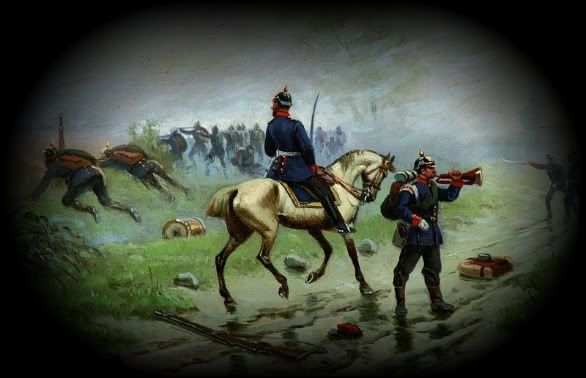
* * * “Don’t bother.” Katja’s voice stung me awake, but it wasn’t me she was talking to. “Go in after him and neither of you will come out again.”
I lay in the road, my cheek pressed to the dirt. The tall, brown grasses of the roadside shivered mere inches from my face. The erlenman was long gone.
“Who was he, madam?” I recognized the voice of the scout.
“A state secret,” she said curtly, and her eyes found mine. “Ah, Sebastian. Awake? Does it hurt? I hope so.”
I lay on the ground, my wrists bound at my back. Two flaming coals seared me at chest and shoulder.
“Is this what you wanted? To make me shoot you?”
“Don’t,” I managed to gasp. “Don’t be angry.” I tried to rise, to tell her. Something hot and viscous trickled past my lips.
Katja stepped quickly over the cold ground to kneel beside me. Her face was very pale. “Don’t be a fool, Sebastian. Lie still.”
I woke again and again to heat and pain and the rattle of harness, the jolt of cart wheels over stiff ground. I sensed the presence of a large company of riders. I couldn’t fathom where they were taking me. When I closed my eyes the branches of ancient trees brushed my naked shoulders and the sharp scent of pine pierced my nostrils.
I woke again as I stumbled over a threshold, slid down a crude stair to embrace a garden of wilting flowers. Katja stood regarding me for some time before she shut me in, down in the cellar of the Krone...
“Sebastian!” she hissed.
“No,” I said hoarsely, leaving the dream wood behind. “I don’t want to hang. Let me die here.” But she had a grip on my shoulder and I was weak, too weak to fight her. Until the erlenman’s blood dripped from her syringe, penetrated my skin and chased along my veins, like a leaf unfurling. I scrambled upright, breathing hard.
Katja rose to her feet. I watched her shake out her skirts.
“I’ve been pardoned,” I said.
She made a noise of exasperation. “No, Sebastian, they mean to hang you. Von Buquoy’s even concocted an offense. The von Spieglers will never forgive you, so you’d best not look to them for help. Would you like to know what you did?”
“No.” I crossed the floor and stood close, peering into her eyes. “Why did you come?”
“Isn’t it obvious?” She stepped away from me. “I’m setting you free.”
“What about von Buquoy?”
“As I’ve told you, my duty isn’t to von Buquoy.” She drew her brows together in a scowl. “Mark me, Sebastian. I won’t be able to protect you if you’re recaptured. Which is more likely, the longer we stand here.” I had but a moment to notice the knapsack in her hand, before it went tumbling through the air. I caught it clumsily. “You’ll have to keep running. Maybe Britannia.”
“Why?”
“Von Buquoy won’t look beyond the continent.”
“That’s not what I mean. I betrayed you. Why come here, why let me go?”
She shrugged and looked away. “For the opportunity to tell you what a fool you are.” I could see the slightest quiver at her mouth. “You could have had everything, Sebastian. But instead you threw everything away.” She looked up at me, daring me to deny it.
“I could ask you to come with me,” I said at last.
“Don’t be ridiculous,” she said, sounding more like herself. She stepped to one side, made a gesture toward the open door. There was nothing else left.
I moved, rushed past her, taking the steps two at a time. The earth hummed through the soles of my boots, vibrating with secret life. The courtyard, the stable flew past. A vast kinship waited for me to come and claim it, and it wasn’t in Britannia. I slipped into my stride, feeling the long muscles heat and stretch. I smelled the moist green scent of trees in the air and followed it out of the city.
* * *After spending time on three continents,
Barb Siples currently enjoys citizenship in The People's Republic of Portland, Oregon. Taking full advantage of her city's public transportation system, she amuses herself by secretly casting fellow rail passengers in the fantasy, sci-fi, horror and historical fiction stories she writes. Read more of her stuff at www.barbsiples.com
What advice do you have for other historical fiction writers?Travel. Sail down the Nile on a felucca, haggle for a carpet in the sun-baked streets of Samarkand, survey the ruins of Chaco Canyon from the summit of Pueblo Bonita. Taste the flavor of the centuries in the air.
